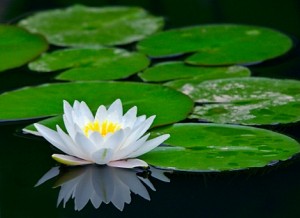 Be not engrossed in the world (1Cor 7:31)
Be not engrossed in the world (1Cor 7:31)
Note: This reflection is based on the second reading of this Sunday. If you wish to have a sermon on the gospel reading of today, click here.
The Word of God during Sunday liturgies, particularly during the Ordinary Time, has a pattern. This year being Cycle B (divide the year 2015 by 3, the remainder is 2, hence Cycle B) we continue to listen to the Gospel of Mark. The first reading of the Sunday liturgy is usually chosen from the Hebrew Scriptures (Old Testament) to match the theme of the gospel text. The second reading is normally sequential. For now we continue to listen to the First Letter of St Paul to the Corinthians.
The second reading of today may seem a little bit weird (1Cor 7:29-31): “the time has become limited, and from now on, those who have spouses should live as though they had none; …. those who are involved with the world as though they were people not engrossed in it. Because this world as we know it is passing away.” What does Paul mean? Let us explore it in two ways, considering the significance that these words would have had among the Christians of Paul’s time; and, what could it mean for us today.
What would have the Christians of Paul’s time made out of it?
The words of St Paul that we heard read in today’s second reading imply a belief in the immediacy of the second coming of Jesus (in what is also referred to as ‘parousia’). In the Gospel of Matthew, Jesus talks about the “coming of the Son of Man” (Mt 24), and that this coming was going to be sudden and unexpected (see also Jn 21:22-23). St Paul picks this up very seriously and alludes to a belief that the Lord was coming back in Paul’s own life time. Such a belief is very strong, particularly in his early epistles, notable among them is the First Letter to the Thessalonians.
However, in his later epistles, he would reduce the tone of the immediacy while still maintaining the belief in the parousia. For instance, in the Second Letter to the Thesalonians, he would refer to the reign of evil as “still holding him back from appearing before his appointed time” (2Th 2:6). And therefore, there is no need to stop working and depending on others. We need to look after ourselves. He urges the Christians “to go on quietly working and earning the food that they eat” (2Th 3:11).
Similarly, as we heard read in the first reading today, in his First Letter to the Corinthians, St Paul focuses on the moral behaviour of the Christians in the light of the immediacy of the coming of the Lord. However, in his Second Letter to the Corinthians, he is more concerned about the unity of the Christian community itself.
What could this mean for us today?
First of all, belief in the second coming of the Lord is one of the core beliefs of Christian faith. However, we don’t need to panic that Jesus is going to come during our own life time. Prophesies of doom have been consistently shown to be false. If the coming of Jesus is in terms of our own individual death, so be it.
Having said that, the second reading of today teaches us to have an attitude towards the world, which is very meaningful for us: to live in the world and not be submerged by the world. Jesus himself told the disciples during the Last Supper, “If you belonged to the world, the world would love you as its own; but because you do not belong to the world, because my choice of you has drawn you out of the world, that is why the world hates you” (Jn 15:19).
In this context, I would like to repeat something that I had written in a previous book of mine. This concerns a reflection on the water lily or a lotus and its relation to water. Our own relation to the world could be something similar. This is inspired by the Tamil poet Thiruvalluvar.
The water lily-
that amazing water plant,
many a lesson does it teach me.
The broad water-proof leaves keep up the plant’s buoyancy.
Its flexible roots keep it firm on the ground
even amidst the moving waters.
Water never sticks onto its leaves and flowers!
The lily is in the water, but never becomes of the water!
I need to be in the world,
but not of the world,
with my feet firmly on the ground and my eyes fixed on heaven.
The water lily-
its leaves and flowers always float on the water.
When the water is two feet, the plant is two feet.
When the water is six feet, the plant is too.
And if there should be a sudden flood in the pond,
the flower may get submerged for a day or two,
but ultimately it will float on top of the water.
If it should fail to do so, it will die rotting in the water.
I get angry, I get upset, and I get annoyed. I get busy.
I am overwhelmed by the actions and reactions of others.
I need to rise above the turmoil as soon as possible, lest I stay and rot.
Why? As St Paul says, the world is passing away. It is God who alone is permanent. St. Teresa of Avila captured this so meaningfully!
“Let nothing disturb you,
Let nothing frighten you,
All things are passing;
God only is changeless.
Patience gains all things.
Who has God wants nothing.
God alone suffices.”